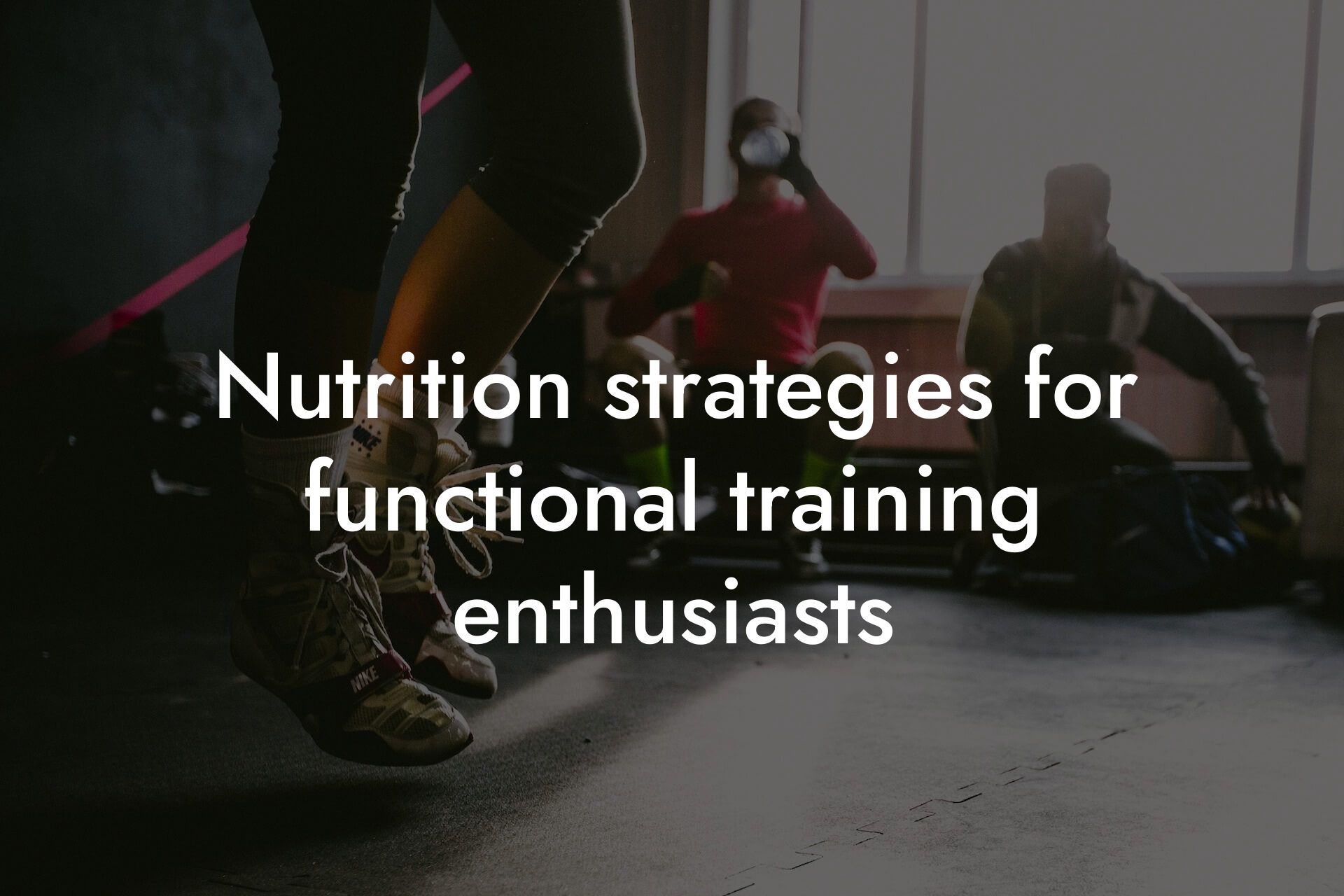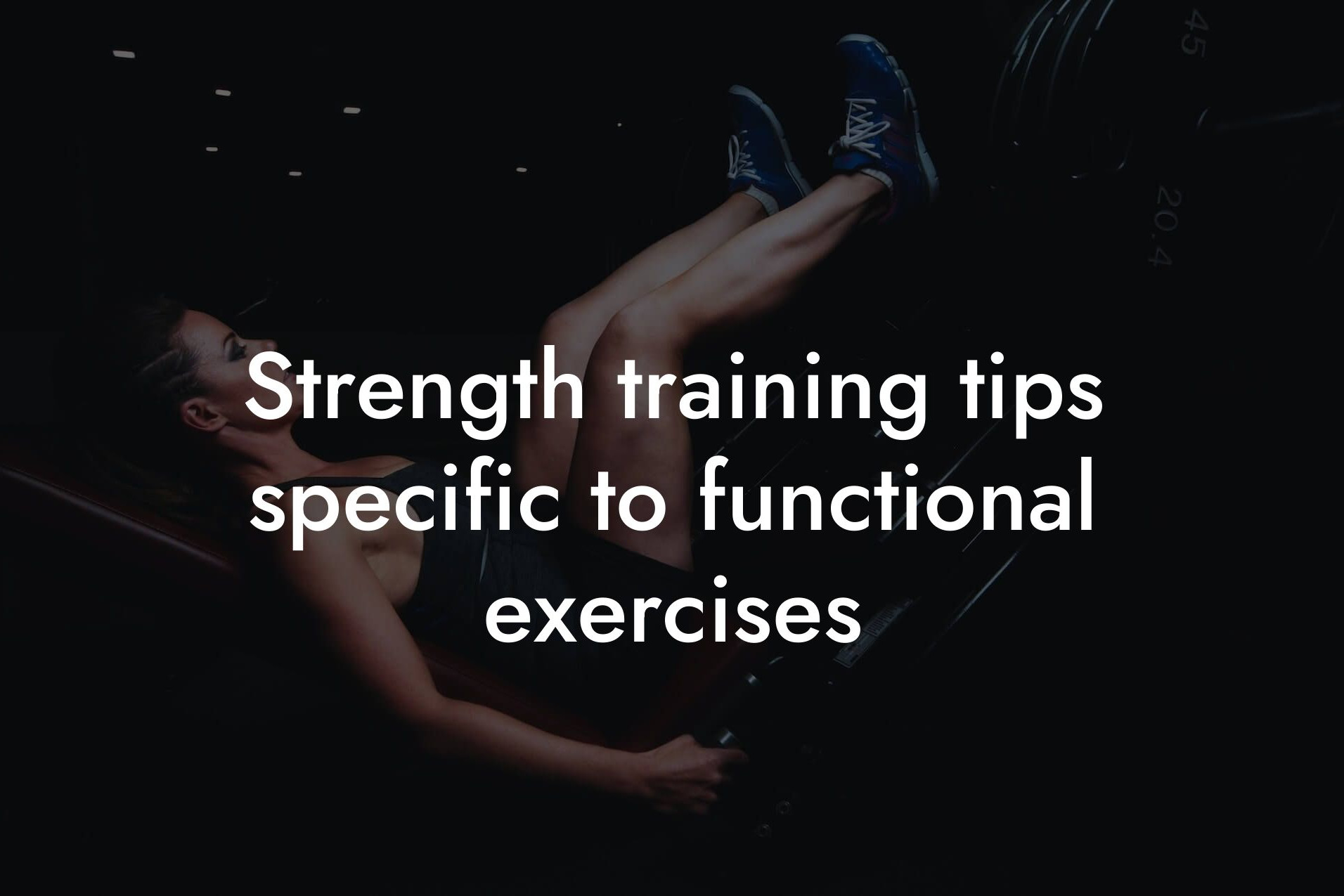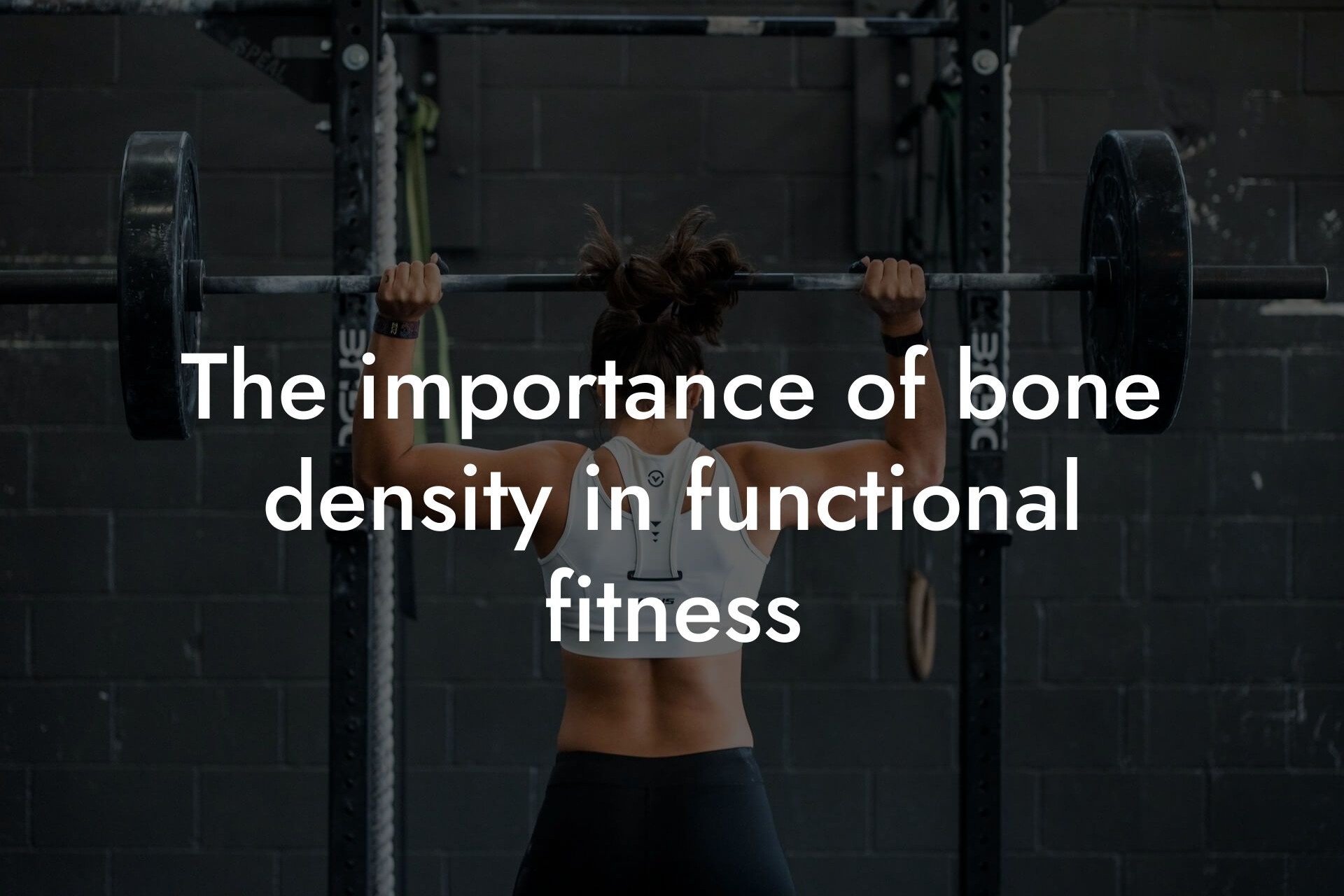As a high-earning professional, you understand the importance of maintaining a strong and healthy body to support your active lifestyle. Functional strength and mobility are essential components of overall fitness, enabling you to perform daily tasks with ease, reduce the risk of injury, and improve your overall physical appearance. In this article, we will delve into the world of functional strength and mobility, providing you with a comprehensive guide on how to improve these critical aspects of your fitness.
Table of Contents
What is Functional Strength?
Functional strength refers to the strength and power you need to perform everyday activities, such as carrying groceries, playing with your children, or simply getting up from a chair. It is the ability to generate force, speed, and endurance to accomplish tasks that require movement and coordination. Functional strength is not just about having big muscles; it's about having the strength, flexibility, and mobility to move efficiently and effectively.
Why is Functional Strength Important?
Having functional strength is crucial for several reasons. Firstly, it improves your overall physical performance, enabling you to tackle daily tasks with confidence and ease. Secondly, it reduces the risk of injury, as you are better equipped to handle unexpected movements and challenges. Thirdly, functional strength improves your posture, balance, and coordination, reducing the likelihood of falls and other accidents. Finally, it enhances your athletic performance, allowing you to participate in sports and activities with greater power, speed, and agility.
What is Mobility?
Mobility refers to the range of motion in your joints, allowing you to move freely and perform various activities without restriction. It encompasses flexibility, coordination, and balance, enabling you to twist, turn, bend, and stretch with ease. Good mobility is essential for maintaining proper posture, preventing injuries, and improving overall physical function.
Why is Mobility Important?
Mobility is vital for several reasons. Firstly, it improves your overall physical function, enabling you to move freely and perform daily tasks with ease. Secondly, it reduces the risk of injury, as you are better equipped to handle unexpected movements and challenges. Thirdly, mobility improves your posture, balance, and coordination, reducing the likelihood of falls and other accidents. Finally, it enhances your athletic performance, allowing you to participate in sports and activities with greater power, speed, and agility.
Exercises for Improving Functional Strength
To improve functional strength, it's essential to incorporate exercises that target multiple muscle groups and joints. Here are some effective exercises to get you started:
- Squats: Works the legs, glutes, and core muscles
- Lunges: Targets the legs, glutes, and hips
- Deadlifts: Engages the legs, glutes, back, and core muscles
- Step-ups: Works the legs, glutes, and hips
- Box jumps: Targets the legs, glutes, and core muscles
- Planks: Engages the core muscles, improving stability and balance
- Rows: Works the back, shoulders, and arms
- Carries: Targets the core muscles, improving stability and balance
Exercises for Improving Mobility
To improve mobility, it's essential to incorporate exercises that target specific joints and muscle groups. Here are some effective exercises to get you started:
- Leg swings: Targets the hips and legs
- Arm circles: Works the shoulders and chest
- Neck stretches: Targets the neck and shoulders
- Hip openers: Engages the hips and glutes
- Knee lifts: Targets the knees and legs
- Ankle rotations: Works the ankles and feet
- Wrist extensions: Targets the wrists and forearms
Incorporating Functional Strength and Mobility into Your Daily Routine
To reap the benefits of functional strength and mobility, it's essential to incorporate these exercises into your daily routine. Here are some tips to get you started:
- Start with short sessions (20-30 minutes) and gradually increase the duration as you build strength and endurance
- Incorporate exercises into your daily routine, such as during commercial breaks while watching TV or during your lunch break at work
- Focus on exercises that target multiple muscle groups and joints
- Listen to your body and rest when needed, as overtraining can lead to injury and burnout
- Make it fun! Incorporate exercises into activities you enjoy, such as playing with your children or participating in sports
Improving functional strength and mobility is crucial for maintaining a strong and healthy body. By incorporating exercises that target multiple muscle groups and joints, you can improve your overall physical performance, reduce the risk of injury, and enhance your athletic performance. Remember to start slow, listen to your body, and make it fun! With consistent effort and dedication, you can achieve optimal functional strength and mobility, taking your physical appearance and overall health to the next level.
At Tano Performance Group, we understand the importance of functional strength and mobility in achieving your fitness goals. Our DEXA machine provides a comprehensive body assessment, giving you the information you need to take your fitness to the next level. Contact us today to learn more about our services and how we can help you achieve optimal functional strength and mobility.
Frequently Asked Questions
What is functional strength and mobility?
Functional strength and mobility refer to the ability of your muscles, joints, and nervous system to work together to perform daily activities and movements with ease, efficiency, and control. It's about building strength that translates to real-life situations, rather than just isolated exercises.
Why is functional strength and mobility important for high-earning professionals?
As a high-earning professional, you likely have a demanding career that requires long hours of sitting, traveling, or other activities that can take a toll on your physical health. Improving functional strength and mobility can help you maintain your physical appearance, reduce the risk of injury, and increase your energy levels, ultimately leading to better overall health and well-being.
What are the benefits of improving functional strength and mobility?
The benefits are numerous! Improving functional strength and mobility can help you increase your bone density, reduce body fat, enhance your physique, and even improve your mental clarity and focus. You'll also experience improved posture, reduced muscle tension, and a lower risk of chronic diseases like osteoporosis and diabetes.
How does functional strength and mobility differ from traditional gym exercises?
Traditional gym exercises often focus on isolating specific muscle groups, whereas functional strength and mobility exercises focus on integrating multiple muscle groups to perform movements that mimic real-life activities. This approach helps improve coordination, balance, and overall functional ability.
What are some examples of functional strength and mobility exercises?
Examples include squats, lunges, step-ups, deadlifts, and exercises that involve rotation, such as medicine ball throws or cable rotations. These exercises help improve strength, power, and mobility in multiple planes of motion, making them more applicable to daily life.
Do I need to be an athlete to benefit from functional strength and mobility training?
Absolutely not! Functional strength and mobility training is beneficial for anyone, regardless of age, fitness level, or occupation. Whether you're a busy professional, a stay-at-home parent, or an athlete, improving functional strength and mobility can help you move more efficiently, reduce the risk of injury, and enhance your overall quality of life.
How often should I incorporate functional strength and mobility exercises into my workout routine?
Aim to incorporate functional strength and mobility exercises 2-3 times per week, with at least one day of rest in between. This allows your muscles to recover and adapt to the new demands you're placing on them.
Can I do functional strength and mobility exercises at home or do I need to join a gym?
You can do functional strength and mobility exercises anywhere! While a gym membership can provide access to a variety of equipment and training options, many exercises can be done at home with minimal equipment, such as bodyweight exercises or exercises using resistance bands.
What are some common mistakes people make when starting a functional strength and mobility program?
Common mistakes include not warming up properly, not listening to their body and pushing through pain, and not incorporating exercises that target multiple muscle groups. It's also important to start slowly and progress gradually to avoid injury or burnout.
How long does it take to see results from functional strength and mobility training?
Results can vary depending on individual factors, such as starting fitness level and consistency of training. However, with regular practice, you can start to notice improvements in your strength, mobility, and overall physical function within 4-6 weeks.
Can functional strength and mobility training help with weight loss?
Yes! Functional strength and mobility training can help you burn more calories, both during and after exercise, which can contribute to weight loss. Additionally, building muscle mass through strength training can further boost your metabolism, helping you lose weight and maintain weight loss over time.
How does functional strength and mobility training impact bone density?
Functional strength and mobility training can help improve bone density by stimulating osteogenesis, the process by which new bone tissue is formed. This is especially important for high-earning professionals who may be at risk for osteoporosis due to a sedentary lifestyle.
Can functional strength and mobility training help with back pain?
Yes! Functional strength and mobility training can help alleviate back pain by improving posture, reducing muscle tension, and increasing strength and stability in the core and surrounding muscles.
How does functional strength and mobility training impact mental health?
Functional strength and mobility training can have a positive impact on mental health by reducing stress and anxiety, improving mood, and increasing self-confidence. Exercise has also been shown to reduce symptoms of depression and improve overall mental well-being.
Can I incorporate functional strength and mobility training into my existing workout routine?
Absolutely! You can incorporate functional strength and mobility exercises into your existing workout routine by replacing traditional exercises with functional exercises, or by adding functional exercises as a supplement to your existing routine.
How does functional strength and mobility training impact athletic performance?
Functional strength and mobility training can improve athletic performance by increasing power, speed, agility, and endurance. It can also help reduce the risk of injury and improve overall functional ability, making it an essential component of any athlete's training program.
What are some common injuries associated with poor functional strength and mobility?
Common injuries associated with poor functional strength and mobility include lower back strain, shoulder impingement, knee injuries, and ankle sprains. Improving functional strength and mobility can help reduce the risk of these injuries and improve overall physical resilience.
How does functional strength and mobility training impact daily activities?
Functional strength and mobility training can make daily activities easier and less straining, such as carrying groceries, playing with children, or simply getting up from a chair. It can also improve your overall sense of confidence and independence.
Can functional strength and mobility training be adapted for different fitness levels?
Yes! Functional strength and mobility training can be adapted for different fitness levels by modifying exercises, reducing or increasing intensity, and incorporating assistive devices or props. A qualified trainer or fitness professional can help you create a personalized program that meets your individual needs and goals.
How does functional strength and mobility training impact overall health and well-being?
Functional strength and mobility training can have a profound impact on overall health and well-being by reducing the risk of chronic diseases, improving mental health, and increasing physical function and independence. It can also improve sleep quality, reduce inflammation, and boost overall energy levels.
What are some resources available for learning more about functional strength and mobility training?
There are many resources available, including online articles, videos, and training programs. You can also consult with a qualified trainer or fitness professional who specializes in functional strength and mobility training. At Tano Performance Group, we offer a range of resources and training programs designed to help you achieve your fitness goals and improve your overall health and well-being.
Here are some related articles you might love...
- Nutrition strategies for functional training enthusiasts
- Strength training tips specific to functional exercises
- The importance of bone density in functional fitness
- Preventing injuries in functional training: A comprehensive guide
- Balancing strength, speed, and flexibility in functional training
- Maintaining muscle recovery with functional training
- How DEXA scans can benefit functional training athletes
- The role of body composition in functional training performance
- Reducing body fat for better functional training results
Zak Faulkner
Zak Faulkner is a leading authority in the realm of physical health and body composition analysis, with over 15 years of experience helping professionals optimise their fitness and well-being. As one the experts behind Tano Performance Group, Zak has dedicated his career to providing in-depth, science-backed insights that empower clients to elevate their physical performance and overall health.
With extensive knowledge of DEXA technology, Zak specializes in delivering comprehensive body assessments that offer precise data on body fat, muscle mass, bone density, and overall physique. His expertise enables individuals to make informed decisions and achieve their fitness goals with accuracy and confidence. Zak’s approach is rooted in a deep understanding of human physiology, combined with a passion for helping clients unlock their full potential through personalised strategies.
Over the years, Zak has earned a reputation for his commitment to excellence, precision, and client-focused service. His guidance is trusted by top professionals who demand the best when it comes to their health. Whether advising on fitness programs, nutritional strategies, or long-term wellness plans, Zak Faulkner’s insights are a valuable resource for anyone serious about taking their health and fitness to the next level.
At Tano Performance Group, Zak continues to lead our Content Team revolutionising how professionals approach their physical health, offering unparalleled expertise that drives real results.




